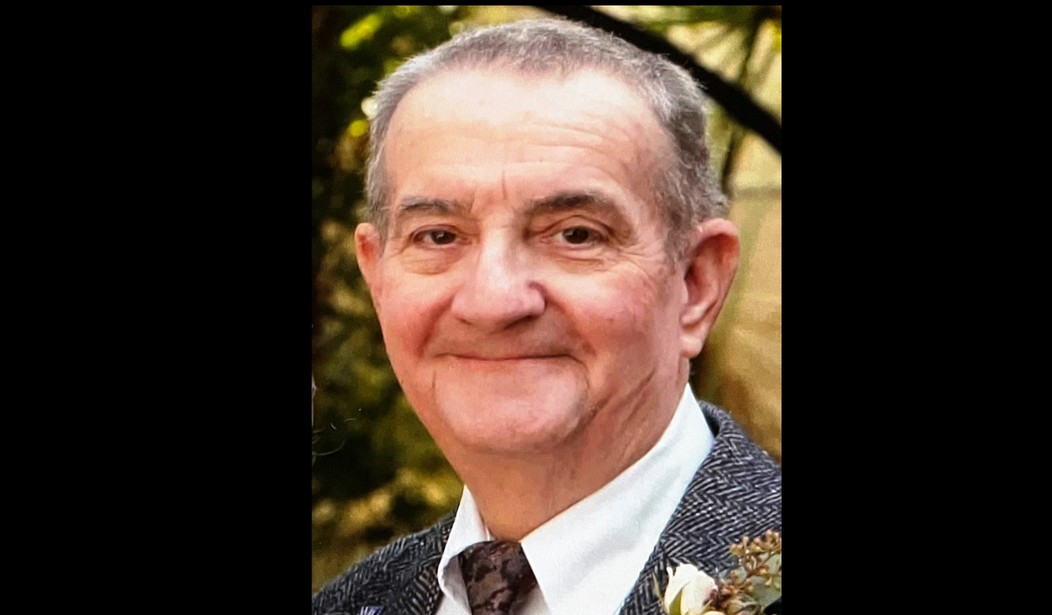A school-favorite high school teacher of mine died late last month. His name was Talmyr Clarke Metz. He was 85 years old, and he died with little fanfare after a brief illness. It’s not his death that was remarkable, however; it was his life.
Growing up in an era where teachers mostly left their personal lives and agendas at home, I only knew him, of course, as my teacher, Mr. Metz. He taught Industrial Arts and Driver’s Education for over 25 years at my rural Ohio high school. When I took his classes, he was probably in his late 40s or early 50s — we never really knew how old our teachers were back then; however, to be fair, we students hardly even acknowledged that our teachers were real people, let alone ones with first names with lives beyond our school’s windowless walls — and frankly, we were each okay with that.
But as I read Mr. Metz’s lengthy obituary and some reminiscences posted about him in a high school Facebook group, I realized exactly how much I didn’t know about him.
And while I was fond of Mr. Metz as the quirky, nerdy, tough teacher that he was, I couldn’t help but also recognize how lucky I am to have grown up in a time when teachers taught students useful life skills and knowledge, not useless indoctrination and SJW propaganda. It was a time when students were simply students, not fodder for social activists. I didn’t know Mr. Metz as a person, and I was okay with that. That’s quite the contrast to how different and abusive intrusive teachers are with today’s students.
Mr. Metz was born on Groundhog Day in 1937, which may go some way to explain why, like Phil in the eponymous film, he seemed as if he were stuck in a different era. Unlike today’s woke rainbow-wearing and multi-colored-hair-preening harridans teachers, Mr. Metz could be counted on to wear the same 1950s-inspired short-sleeved two-pocket white dress shirts, skinny black ties, and black-framed glasses nearly every single school day. And when on the rare occasion he strayed from this nerdy uniform, with, say, a light gray or light blue shirt, it quickly became the topic of conversation because it was so unusual, not because he was so unusual. And guess what? Mr. Metz never once suggested we should dress that way.
Mr. Metz was a very energetic yet orderly minded creature of habit. No matter how much we students teased or cajoled him, he rarely varied in his ways because, “if it ain’t broke, why fix it?” he’d ask, much to our chorus of groans. Every class of his was structured the same way and, while sometimes maddening, in some ways it was comforting. We always knew what to expect from Mr. Metz. I can’t even begin to imagine how anxiety-inducing some classrooms must be today headed by social justice propagandists teachers who change their curricula and lesson plans with the “social justice” winds of each news cycle. Mr. Metz was reliably consistent, and we liked that; we counted on it.
Even the common act of ordering from McDonald’s for our group dinner breaks during Driver’s Ed classes was not immune to Mr. Metz’s strict sense of order and habit. We knew without a doubt he’d order the fish sandwich every single time. Of course, being teenagers, we were curious if he knew how many of those smelly culinary monstrosities he’d eaten over the years. He never did tell us the total because “it’s personal,” but we all were certain he kept a running tally. Never once did Mr. Metz suggest we should eat only a sustainably-caught Filet-O-Fish or refrain from eating a juicy hamburger full of beefy goodness. It wasn’t his job to save the world.
We were vaguely aware that Mr. Metz was married since he wore a wedding band, but beyond that, we didn’t know much else. Did he love his wife? Did he have children? Did he attend church? Did he vote, and, if so, for which candidate? Imagine how unnerving it must be for today’s captives students to have to listen to their captors’ teachers’ daily verbal vomit concerning their sexual preferences, gender dysphorias, and ideologically driven personal fears about the weather climate change, self-victimization systemic racism, and the phobia du jour- trans-phobia. We didn’t know the answers to those questions or what Mr. Metz’s feelings were about them — and we were okay with that.
The always professional Mr. Metz I knew as a teacher was kind even under stress, firm but fair. He expected excellence from us and required effort. He had a remarkably sharp sense of humor that was clever, not vulgar. He laughed loudly and easily. If we could get Mr. Metz to laugh, it made our day. His teaching both inside the classroom and behind the wheel was filled with colloquialisms and humor intended to seep into the dense know-it-all skulls of teenagers.
During our group Driver’s Ed trips, a helpful Mr. Metz was fond of saying, “Hurry up and stop. Hurry up and stop,” with a delivery so dry even an inexperienced young driver understood that maybe it wasn’t such a bright idea to waste gasoline while accelerating towards a red light. I like to think Mr. Metz would be tickled to know I made sure to pass on that bit of wisdom to each of my boys when I taught them to drive. Of course, as time went on in class, we more experienced drivers would anticipate his subtle yet effective chidings of the newbies while dissolving into fits of laughter in the backseat. I heard the refrain, “You didn’t stop, you didn’t stop, you didn’t stop…” more than I care to admit, as we teenagers one after another rolled through a stop sign or two on the thankfully deserted back roads of our county. To this day, I still hear Mr. Metz’s voice inside my head when I drive; good teachers are like that.
But it was in Industrial Arts — or Mechanical Drawing as we called it — where the steadfast Mr. Metz and his tidbits of wisdom really made an impression on us. He seemed to have a saying for every situation, as most experienced teachers do — his sayings were too numerous to mention. “You don’t have time to do it right, but you have time to do it over,” had to be his most-said aphorism and one that still pops into my mind when I want to rush through a task. Murphy’s Three Laws had to be a close second; you know the ones: “Anything that can go wrong will go wrong. Nothing is as easy as it looks. And everything takes longer than you think it will.” Never discouraging or placating, Mr. Metz wouldn’t have ever encouraged the mediocrity or dumbing-down of the schoolwork that today’s students experience. We could do the work. And he knew we could even if we griped while doing it. There were no participation trophies in Mr. Metz’s world, and we respected that.
I never knew that, after high school, Mr. Metz became a drill sergeant in the U.S. Air Force, but now his regimented ways and love of America make perfect sense. I barely knew he was married, let alone for over 57 years to a saint of a woman who happened to have been born in my childhood hometown, just as he was. I never knew Mr. Metz was a technical draftsman whose meticulous illustrations are still in use today. I never knew he had been a member of the same church his entire life, but I could tell by his kind ways that he was a Christian who lived out his faith. I never knew he was a devoted father to two sons and a proud and active grandfather to three grandsons, one of whom is his namesake. I never knew all these things and more about you, Mr. Metz, but thank you, farewell, and Godspeed. You were a truly remarkable teacher and an even better human being — and I’m okay with that.










